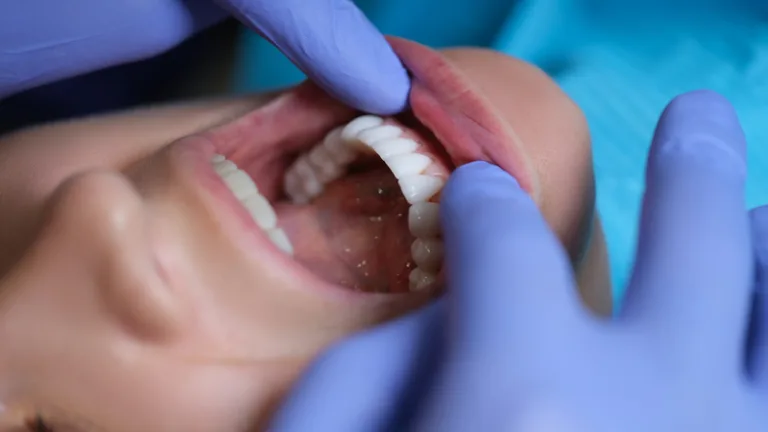When you go for an oral cancer screening, here’s what to expect:
- Visual Check: We will carefully examine your mouth, lips, gums, tongue, and throat for any unusual growths, sores, or discoloration. It’s a painless process where they closely look at your mouth.
- Physical Exam: We may also use our hands to feel the tissues in your mouth and neck, checking for any lumps, swelling, or abnormalities.
- Quick and Easy: The screening is fast and involves no invasive procedures. It only takes a few minutes during your regular dental check-up and is completely painless.
- Learn and Be Aware: While screening, the dentist may talk to you about the importance of oral cancer screenings, risk factors, and how to perform self-checks at home. They provide information on what to look for and how to stay alert.
- Peace of Mind: By getting an oral cancer screening, you’ll know you’re taking a proactive step toward your oral health. Finding any issues early increases the chances of successful treatment.
Remember, an oral cancer screening is a vital preventive measure that can save lives. It’s a crucial part of maintaining oral health and overall well-being.
